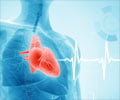Have you been experiencing palpitations, dizziness or light headedness, chest discomfort, pounding in the chest or shortness of breath? It may be time to get your heart checked, for these could be symptoms of arrhythmia, which is an increasingly serious healthcare problem.
Cardiac arrhythmia is a disorder of your heart’s electrical system, in which there is a change in the regular beating of your heart and most often warrants immediate medical attention. In this condition, your heart could beat too quickly i.e., greater than 100 beats per minute (tachycardia), or too slowly i.e., less than 60 beats per minute (bradycardia) or in an irregular way.Early diagnosis of arrhythmia is crucial in improving the health outcomes in millions of people who are affected by this disease. World Heart Rhythm Week is an international event which is designed to promote vital awareness for the detection, protection and correction of various rhythm disorders of the heart. World Heart Rhythm Week 2015 will be celebrated from June 1to 7.
It is estimated that arrhythmia is responsible for nearly 23,000 to 33,000 sudden cardiac arrest deaths each year. Hence, awareness amongst the general public about the symptoms and risks of arrhythmias would go a long way in understanding this cardiac disorder.
Arrhythmia could be caused due to many existing conditions such as coronary artery disease, high blood pressure, cardiomyopathy, valve disorders and many other medical conditions.
Supraventricular arrhythmias begin in the atria (upper chamber of the heart) whereas ventricular arrhythmias, as the name suggests, begin in the ventricles (lower chambers of the heart). Bradyarrhythmias are slow heart rhythms that may be caused by disease in the heart’s conduction system, i.e., sinoatrial (SA) node or the atrioventricular (AV) node.
In patients with atrial fibrillation which is the most common sustained cardiac arrhythmia, heart rate is usually faster than normal and could vary in intensity. If you feel the pulse of such patients, it could be as high as 180 beats per minute and the pulse could feel erratic. Patients could face an increased risk of stroke if left untreated.
Community education and various fundraising events are also held at different places during this week. Awareness packs are also given to people to enable them to spread the word in their community about heart rhythm disorders.
Happy World Heart Rhythm Week to all.














